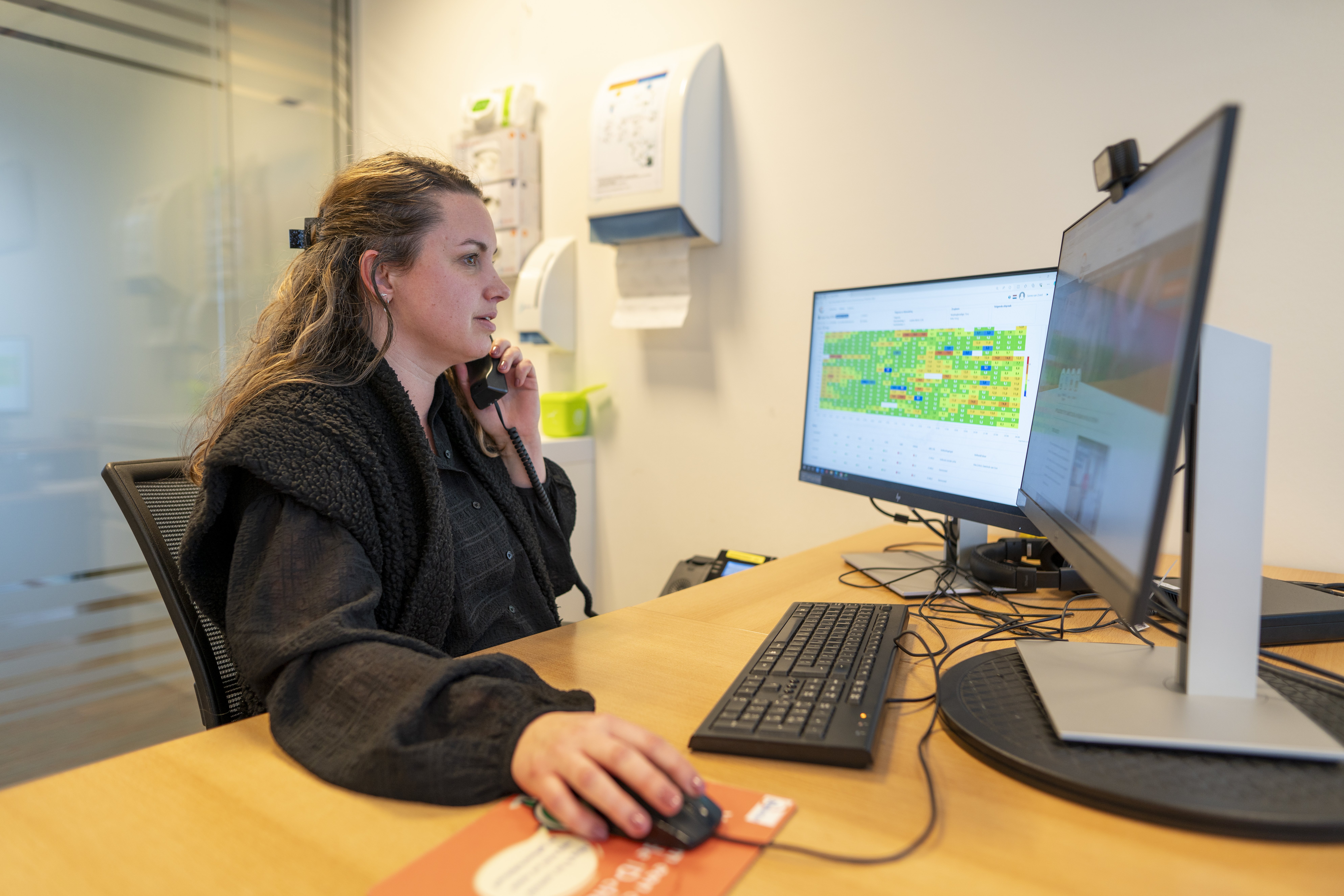Emergency line

Call in case of medical urgency
If you are receiving treatment at Diabeter, we are available 24 hours a day through our emergency line. In case of medical necessity, you can call us directly at 088 - 280 72 77.
In a life-threatening situation, always call 112
Note: for Diabeter Center Amsterdam, please call 088-2809100. or more details, visit their website: Emergency Line Diabeter Center Amsterdam
GoOD TO KNOW
When to call Diabeter
In a life-threatening situation: call 112. For other medical emergencies: call the emergency line.
In case of medical urgency
Not every concern requires medical attention. However, vomiting and persistently high or low glucose levels do.
Who will be answering the phone?
During the day, you'll speak with a diabetes nurse. At night and on weekends, a doctor will answer the phone.
Prepare for the conversation
f you can share the key details right away, you'll get an answer more quickly.
Technical issues?
For problems with your insulin pump, sensor, or other diabetes devices, contact the manufacturer directly.
When should you call the Diabeter emergency line?
If it’s a life-threatening situation, call call directly 112. The Diabeter emergency line is intended for all other medical emergencies.
The emergency line is available for people with type 1 diabetes who are under our care. We are reachable 24/7, all year round, at:
Our emergency line is also open to treating physicians in case urgent medical consultation is needed.
THE EMERGENCY LINE MENU
When you call the emergency line, you’ll be given 3 options:
-
Are you being treated by a pediatrician at Diabeter? Press 1.
-
Are you being treated by an internist at Diabeter? Press 2.
-
Not sure who your treating physician at Diabeter is? Press 3. We’ll ask for your age.
-
People under 25 will be connected to a pediatrician or pediatric diabetes nurse.
-
People over 25 will speak with an internist or adult diabetes nurse.
DO NOT LEAVE A VOICEMAIL
Sometimes we may be on another call or temporarily unavailable. If that happens, please call back after a few minutes.
Do not leave a voicemail. The emergency line comes through a central number, which means we cannot call back as your phone number is not visible.
When should you call the Diabeter emergency line?
The emergency line is for urgent medical situations where you need to speak with a healthcare provider quickly. Examples include:
- Vomiting. Always call. Vomiting can indicate serious complications.
- Prolonged high blood sugar. If your glucose levels remain high due to illness or without a clear reason, contact your care team during the day. In the evening or at night, call the emergency line.
- Low blood sugar that won’t rise. This can be dangerous. If someone is in life-threatening danger, call 112 immediately.
- Hospital admission. No matter the reason for your admission, please inform us. This allows your hospital care team to consult with Diabeter if needed.
- Broken insulin pump. If your pump stops working and you're unsure how much insulin to inject in the meantime, call us.
We understand that diabetes-related issues can be stressful. The emergency line is reserved for urgent situations. If your concern can wait, please email your care team during the day or use the scheduled call hours.
Who answers the phone when you call the emergency line?
When you call the Diabeter emergency line, you’ll be connected to a Diabeter healthcare professional.
Who you speak to depends on the time of day:
- During the day, it’s usually a diabetes nurse.
- At night and on weekends, you’ll speak with a medical specialist, such as a doctor or internist.
Please note: You’ll speak with the on-call professional at that moment. This may not be your regular care provider.
Prepare for the call - if possible
In a medical emergency, call the Diabeter emergency line as quickly as you can. If you're able to gather a few key details beforehand, it can help the healthcare professional assist you more efficiently.
KABIMS: A Handy Checklist for Emergency Calls
The acronym KABIMS helps you prepare key information before calling the emergency line:
- K – Ketones - If your blood glucose is high, the healthcare provider will always ask whether you've checked your ketone levels.
- A – Anything unusual - Are there any special circumstances? This could be important—such as being ill or unsure about the carbohydrate content of a meal.
- B – Blood glucose - Always measure your blood glucose before calling. Readings from the past 12 hours are also helpful.
- I – Insulin - Be ready to share how much insulin you've taken recently. It’s also useful to know your usual injection schedule.
- M – Meter and upload - In urgent cases, uploading data may not be possible. But if you can, uploading your glucose meter or pump data helps the emergency team give better advice.
- S – System and tubing - Think about when you last changed the tubing on your insulin pump. Also check if there might be any issues with your insulin or diabetes supplies.
Technical issues with your pump or sensor
Diabetes technology can sometimes fail unexpectedly—such as your insulin pump or sensor.
If this happens, please contact the manufacturer of your device directly.
Unfortunately, the Diabeter emergency line cannot assist with these issues.
This also applies to problems with your glucose meter or test strips.
Running Low on Diabetes Supplies
The emergency line cannot help with shortages of diabetes supplies either.
If you unexpectedly run out of items like infusion sets or sensors, contact your supplier.
If you’re suddenly low on insulin, reach out to a local pharmacy that is currently open.
You do not need a prescription. Because insulin is essential, pharmacies are required to provide it. It’s a good idea to bring your dosing schedule with you.